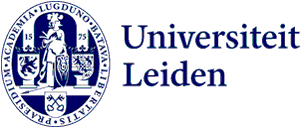Work Experience Survey 2025: Insights and actions within HUM
In the spring of 2025, the Work Experience Survey (WBO) and the Psychosocial Workload Risk Assesment & Evaluation (RI&E PSA) were conducted within Leiden University. These surveys provide important input for the forthcoming visit of the Labour Inspectorate to the university in December 2025 and spring 2026. It is not yet known whether the Labour Inspectorate will also conduct interviews at our faculty.
The results for the Faculty of Humanities (HUM) have now been analysed and form the basis for the 2026 Health and Safety Annual Plan. The response rate within HUM was relatively low: 39% for the WBO and 37% for the RI&E PSA, compared to 55% and 52% respectively across the university as a whole (which means that the Labour Inspectorate's threshold of 50% has been achieved). The decline compared to 2022 can possibly be explained by uncertainties within the faculty and criticism of the approach to the survey.
The WBO shows that employees have positive experiences with collegial cooperation, supervisors and flexibility in their work. At the same time, there are concerns about engagement, trust in the organisation, work pressure and career development. The RI&E PSA confirms these concerns: 47% of respondents experience structurally high work pressure, mainly due to workload and limited time. In addition, 28% indicate that they have recently experienced undesirable behaviour, such as bullying, intimidation or discrimination: an increase of 6.5% compared to 2022.
All results and analyses can be found via the link below. Based on these results, a new Health and Safety Annual Plan will be drawn up in the fourth quarter of 2025, in collaboration with the Work-Life Balance Advisory Group. This plan will build on previous initiatives such as the Health and Safety Annual Plan 2025 and the 'Work-Life Balance in Action' action matrix. The results will be discussed within the institutes and departments, with room for additional actions within the units. Other communication will take place via the faculty website and newsletter. The results have also been shared with the Faculty Council and are included in two PowerPoint presentations with details. The further elaboration of the action plan will follow the existing Plan-Do-Check-Act cycle, via the Faculty Board, Scientific Director consultation, Information Management consultation and Faculty Council route.
With this approach, HUM continues to focus on creating a healthy, safe and stimulating working environment for everyone.
